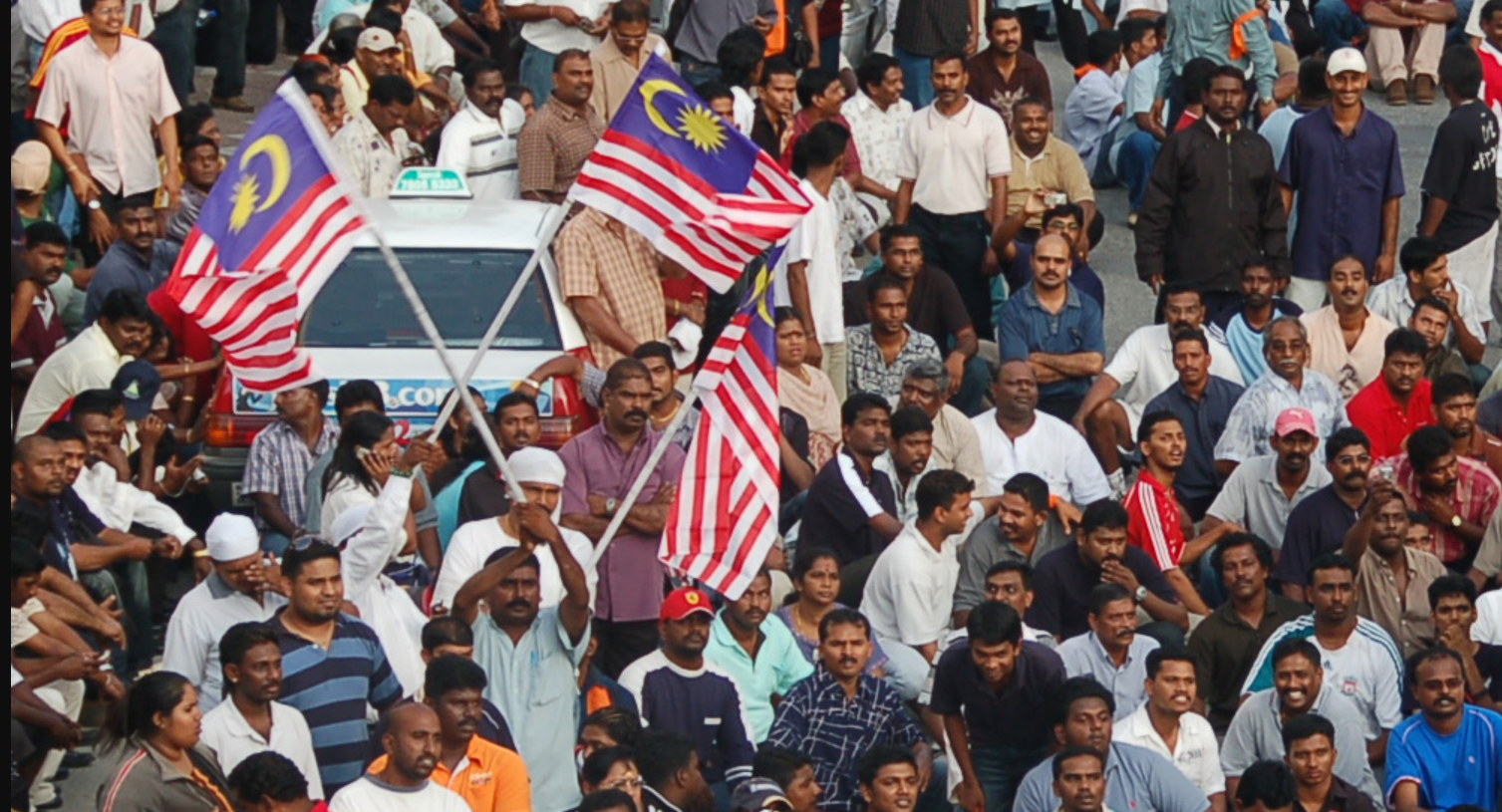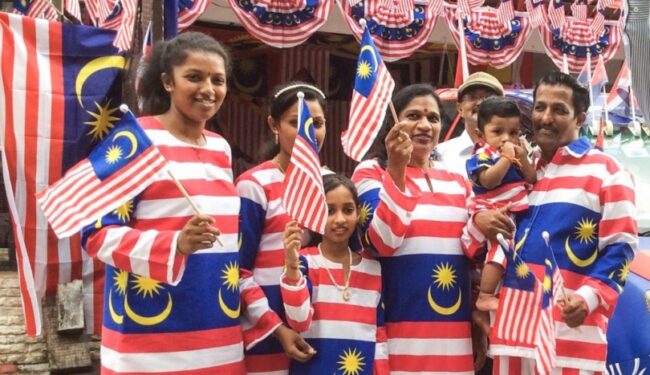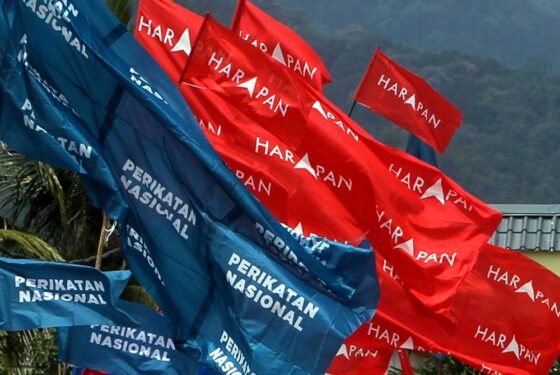
“Way forward for Indians in Malaysia”
By Prof Ramasamy Palanisamy

CHINESE, Indians and to some extent Malays are supporters of the Pakatan Harapan unity government under Prime Minister Datuk Seri Anwar Ibrahim adminstration.
I seriously doubt that Chinese and Indians will support the extremists in Perikatan Nasional (PN), Bersatu and PAS. Their political alternative eschews a proper and meaningful place for the non-Malays.
While Indians are staunch supporters of the unity government and PH in particular, there are issues or problems that need to be addressed.
Numerical dilemma
Indians might be relatively declining in population terms but they are still a sizeable community, the third largest in Peninsular Malaysia after Malays and Chinese.
About 60 states and parliamentary constituencies have sizeable Indian voters who might make a difference to candidates either in terms of winning or losing.
In other words, Indians could be described as “King Makers”.
More than 70% of the Indian community are members of the working class, descendants of once-plantation workers.
Given this position, the problems faced by Indians are similar to those faced by any other minority in the country.
Moreover, the emphasis on race and religion over the years, the narratives emanating from these two criteria have not helped the social, economic and political advancement of the Indian community.

CHINESE, Indians and to some extent Malays are supporters of the Pakatan Harapan unity government under Prime Minister Datuk Seri Anwar Ibrahim adminstration.
I seriously doubt that Chinese and Indians will support the extremists in Perikatan Nasional (PN), Bersatu and PAS. Their political alternative eschews a proper and meaningful place for the non-Malays.
While Indians are staunch supporters of the unity government and PH in particular, there are issues or problems that need to be addressed.
Numerical dilemma
Indians might be relatively declining in population terms but they are still a sizeable community, the third largest in Peninsular Malaysia after Malays and Chinese.
About 60 states and parliamentary constituencies have sizeable Indian voters who might make a difference to candidates either in terms of winning or losing.
In other words, Indians could be described as “King Makers”.
More than 70% of the Indian community are members of the working class, descendants of once-plantation workers.
Given this position, the problems faced by Indians are similar to those faced by any other minority in the country.
Moreover, the emphasis on race and religion over the years, the narratives emanating from these two criteria have not helped the social, economic and political advancement of the Indian community.
Zero-sum narrative
The operation of a zero-sum racial and religious narrative in terms of the acquisition of power has worked to the disadvantage of the Indian community and other ethnic minorities in the country.
Employment-wise, Indians today are underrepresented in the civil service, the public sector, the private sector and others. Their numerical position might not be the sole factor in their underrepresentation. Other factors play a role.
The dominant racial and religious narratives in favour of the Malays have worked to the disadvantage of the Indians in many ways.
Identity question

Under the political and economic circumstances of marginalisation, the question of identity has emerged as the most dominant concern of the Indian community revolving around language, religion and culture.
The concern with cultural identity is as much related to the ideational as it is to the material. It doesn’t take rocket science to understand the close affinity between the cultural and material realms.
The zeal and enthusiasm to defend or safeguard Tamil schools especially in the context of decline, to perpetuate and safeguard places of worship, emphasis placed on cultural festivals and others has come to dominate the Indian political landscape.
The identity question of the Indian community has loomed large, something quite unprecedented in the country in the last few decades. It could be a direct or indirect response to the politics of majoritarianism in the country.
Fear of loosing out
There is fear that the community might lose out, at least in statistical terms, in a few decades.
Anwar’s political leadership and his constant assurance that Malaysia is home to all races have reassured the Indian community. Such a grand narrative has sought to instil hope and expectations on the part of the community.
Divisive forces

(Photo credit: Sinar Harian)
However, the return of the reactionary forces under PN is something that is not comfortable for Indians and others. There is fear that what is being done by the unity government will be undone by the conservative forces in the PN coalition.
The unity government might provide the right political platform for the Indians to be recognised as rightful Malaysian citizens.
Unresolved issues
Furthermore, the political narratives of religious and racial extremism, the issue of incompatibility between the Constitution and state laws on religious conversion (the cases of Indira Gandhi and Loh Siew Hong), the decline of Tamil schools in the country, the alternative to replace these schools, the deterioration of the quality of public education, employment opportunities, the lack of talent development and others continue to plague the community.
Effective leadership
The Indian community cannot afford not to have good and effective leadership to enable the community to move forward.
Leadership cannot be established if the problems of the community are not analysed and understood with a vision to move forward. Leadership in the past has failed to lift the community from its social, economic and political doldrums.
The Indian community needs sound leadership predicated on the notions of human equality, democracy and justice.
Gone are the days of authoritarian or autocratic leadership. Such forms of leadership are incongruent with changing and demanding circumstances. Political parties such as the DAP or PKR might be potentially equipped to lead the Indian community in the future.
Management of finance
One of the biggest stigmas facing the leaders of the Indian community is the effective management of funds meant for the community.
In this respect, it is a shame to acknowledge that the leaders entrusted with funds failed to channel them to the benefit of the community especially the poor segment.
Conclusion
Nevertheless, leadership must be based on understanding the issues of the community and how they can be transformed in the larger context of multi-racial and multi-religious Malaysia.
Within the Indian community, there is a need for leaders to analyse the myriad problems faced by the community, their causes and what needs to be done for their ultimate resolution.
Indian leadership needs to be established in the larger multiracial context of articulating the primary concerns of the community. – June 10, 2023
Prof Ramasamy Palanisamy is the DAP state assemblyman for Perai. He is also Deputy Chief Minister II of Penang.
However, the return of the reactionary forces under PN is something that is not comfortable for Indians and others. There is fear that what is being done by the unity government will be undone by the conservative forces in the PN coalition.
The unity government might provide the right political platform for the Indians to be recognised as rightful Malaysian citizens.
Unresolved issues
Furthermore, the political narratives of religious and racial extremism, the issue of incompatibility between the Constitution and state laws on religious conversion (the cases of Indira Gandhi and Loh Siew Hong), the decline of Tamil schools in the country, the alternative to replace these schools, the deterioration of the quality of public education, employment opportunities, the lack of talent development and others continue to plague the community.
Effective leadership
The Indian community cannot afford not to have good and effective leadership to enable the community to move forward.
Leadership cannot be established if the problems of the community are not analysed and understood with a vision to move forward. Leadership in the past has failed to lift the community from its social, economic and political doldrums.
The Indian community needs sound leadership predicated on the notions of human equality, democracy and justice.
Gone are the days of authoritarian or autocratic leadership. Such forms of leadership are incongruent with changing and demanding circumstances. Political parties such as the DAP or PKR might be potentially equipped to lead the Indian community in the future.
Management of finance
One of the biggest stigmas facing the leaders of the Indian community is the effective management of funds meant for the community.
In this respect, it is a shame to acknowledge that the leaders entrusted with funds failed to channel them to the benefit of the community especially the poor segment.
Conclusion
Nevertheless, leadership must be based on understanding the issues of the community and how they can be transformed in the larger context of multi-racial and multi-religious Malaysia.
Within the Indian community, there is a need for leaders to analyse the myriad problems faced by the community, their causes and what needs to be done for their ultimate resolution.
Indian leadership needs to be established in the larger multiracial context of articulating the primary concerns of the community. – June 10, 2023
Prof Ramasamy Palanisamy is the DAP state assemblyman for Perai. He is also Deputy Chief Minister II of Penang.
No comments:
Post a Comment